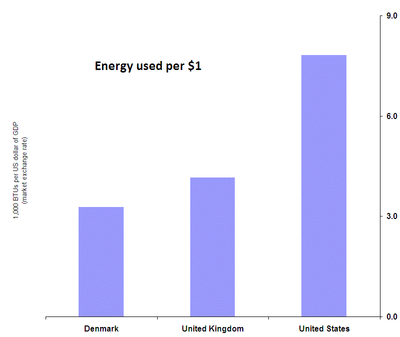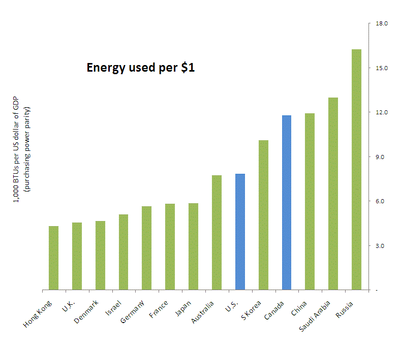As world oil prices are moving up, I think it’s worth revisiting a point that’s often overlooked: when it comes to energy, North America has a big, structural weakness relative to our main economic competitors.
Here’s a look at how much energy use is embedded in the US economy:
Americans require more energy than our competitors to generate a dollar of wealth, and we divert a much larger share of our wealth to pay for energy.
Yet the US is hardly the most energy intensive economy on earth. Here’s a more comprehensive cross-national look at energy intensity:
Looked at this way, it’s easy to see why some governments relentlessly sand-bag carbon pricing or other policies that effectively raise the price of energy. In North America, our systems depend on low-cost energy in a way that just isn’t true for most other middle- and high-income countries.
Yet this sort of policy behavior is negatively self-reinforcing. The more we avoid energy pricing, the more dependent we become on cheap energy. That works okay economically until we end up hitched to global energy markets with rising prices, which is just what we’re seeing with oil. And then our energy -dependent economies end up in a much more precarious position than those in Europe or the wealthier parts of Asia.
***
Notes: If you detect some discrepancies between the two charts, it’s because the first one uses market exchange rates for equalizing currencies, while the second one uses purchasing power parity. All data are derived from US Energy Information Administration figures and represent averages of energy intensity from 2005 to 2009.



Comments are closed.